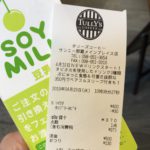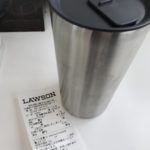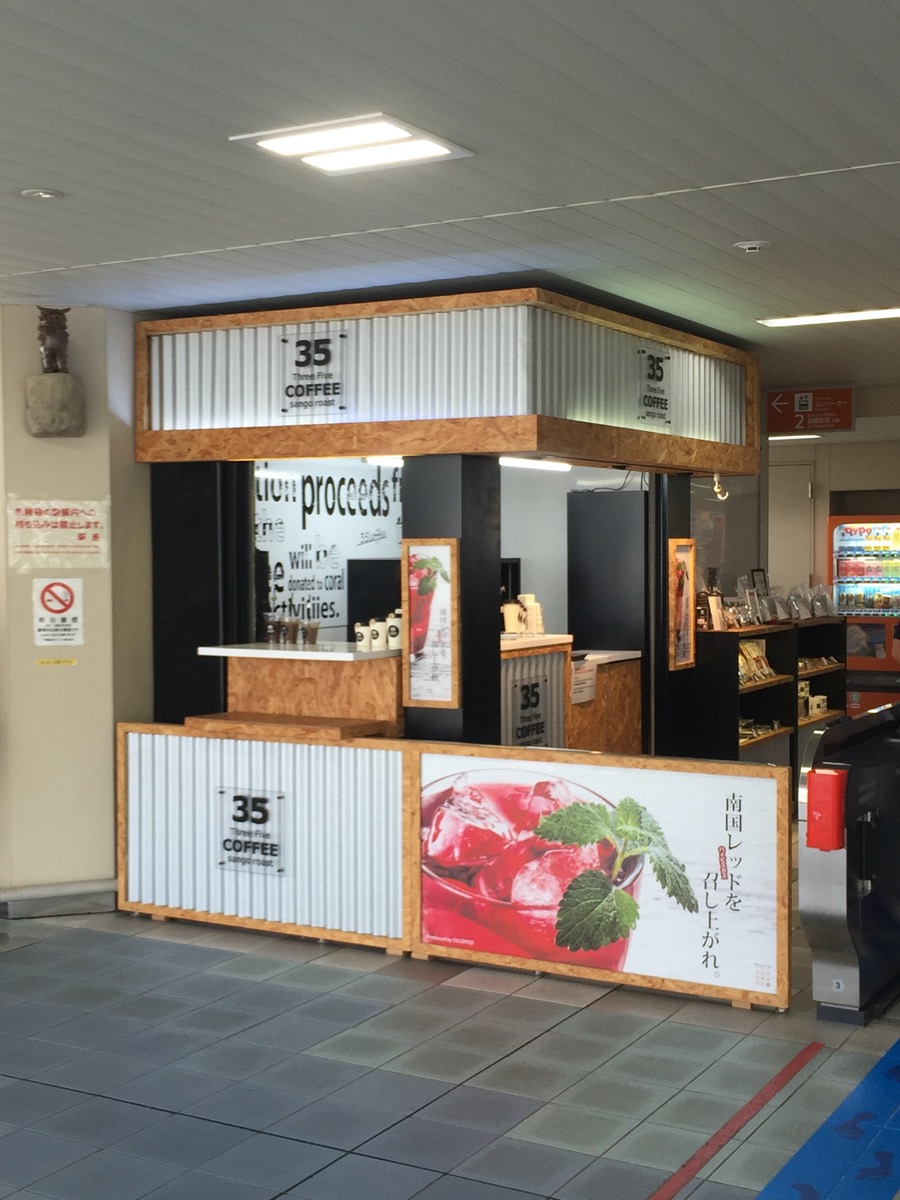It has been awhile since I have made any updates (I keep meaning to) and I have visited dozens of new cafes and tried new local foods. But I will save those for a little later. Recently it was brought to my attention that some people were unaware of some little yen-saving (and eco-conscious) tricks for coffee lovers here in Okinawa. Hopefully you have read about “eco-bag” or “my bag” that I wrote about earlier in the Food Shopping in Japan. Now to talk takeout coffee.
Some people already know that Starbucks will give you a small discount (20yen? 30yen?) for using your own tumbler. But did you know places like Lawson and Tully’s do, too?
At Lawson, bring your own tumbler and they give you a 10yen discount… they should automatically ring it up, it has it’s own barcode. So while 10yen might not be that much, it does add up. Plus you are reducing single-use plastics and cups. Unfortunately, their competitor FamilyMart does not offer a discount however you can still use your own tumbler! 7-11 is arriving soon to Okinawa, and hopefully they will start offering a discount (as of right now I do not think they offer any discount on the mainland).
Tully’s offers a 30yen discount when you bring in your own tumbler for takeout coffee. There are a few Tully’s locations in Okinawa, mostly in the Naha area.
Segafredo is a coffee chain, however there is only 1 in Okinawa; it is located in Yomitan area. They offer a 20yen discount for bringing your own tumbler.
And lastly Cafe de Crie (another chain, only 1 in Okinawa so far located in Naha) offers a 20yen discount for using your own tumbler.
So, there you have it! Save money and the environment, too. Let’s try to keep Okinawa’s beaches clean and beautiful, free of single-use plastics and other debris.
If you visit the mainland of Japan, there are many more places that offer discounts for “my tumbler” use, so be sure to check for them.
By the way, the stainless steel tumbler in my photo is from MUJI 無印良品 and comes in 2 sizes, 300mL and 450mL (I have 450 mL) for a fairly reasonable price (range of 1500yen).
マイタンブラー mai tanburaa “my tumbler” (alternatively 自分のタンブラー jibun no tanburaa, also meaning “my tumbler” but the English-borrowed version is just as acceptable, if not moreso!)
マイボトル mai botoru “my bottle”
マイマッグ mai maggu “my mug” (see a pattern?)
Normally I keep it as simple as possible by saying “マイタンブラーOK?” Sure, this is not sophisticated speech, but why make things more difficult for yourself.
You can also use something like:
このタンブラー使えますか? kono tanburaa tsukaemasu ka? Could you use this tumbler?
このタンブラーにお願いします kono tanburaa ni onegaishimasu. Please put it in this tumbler.


